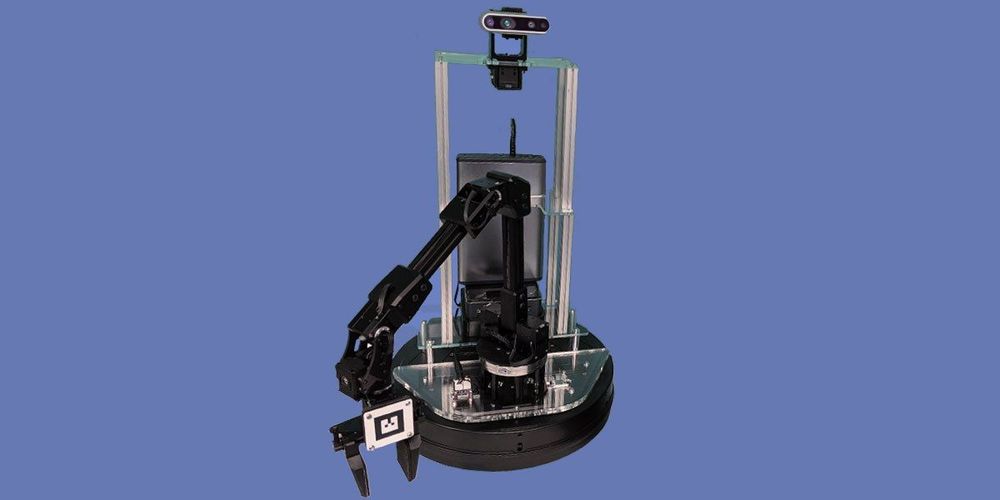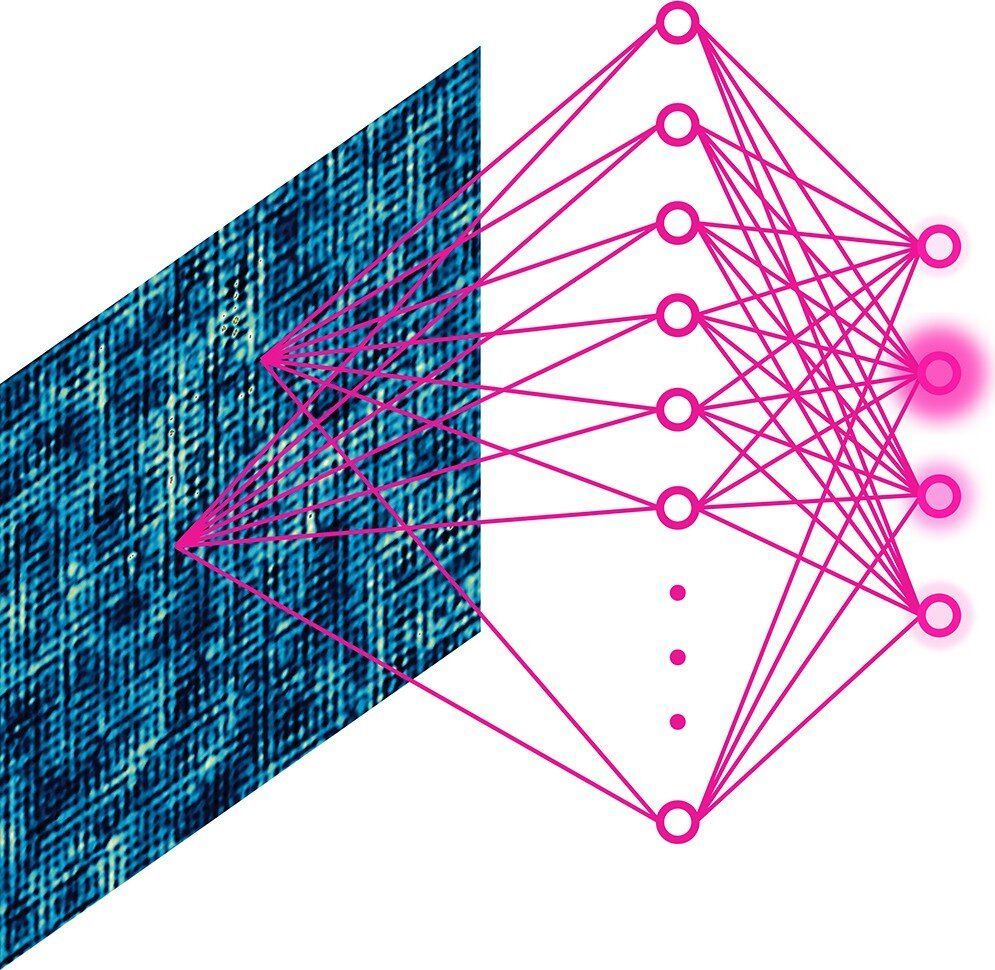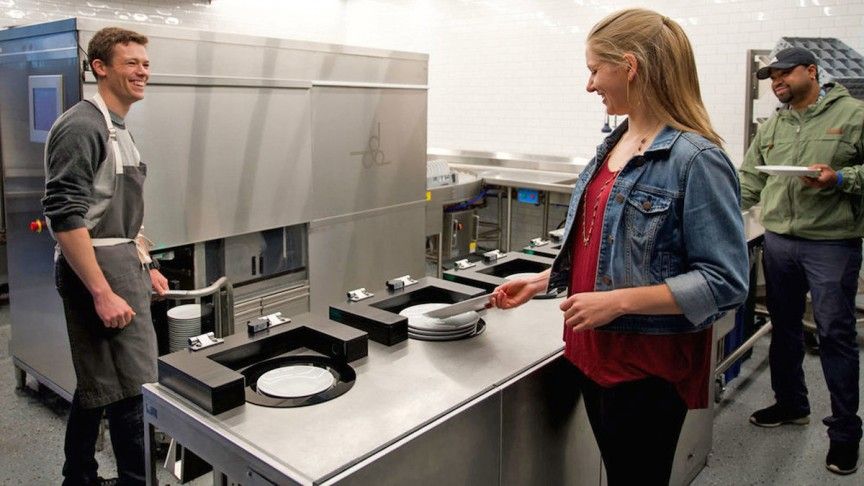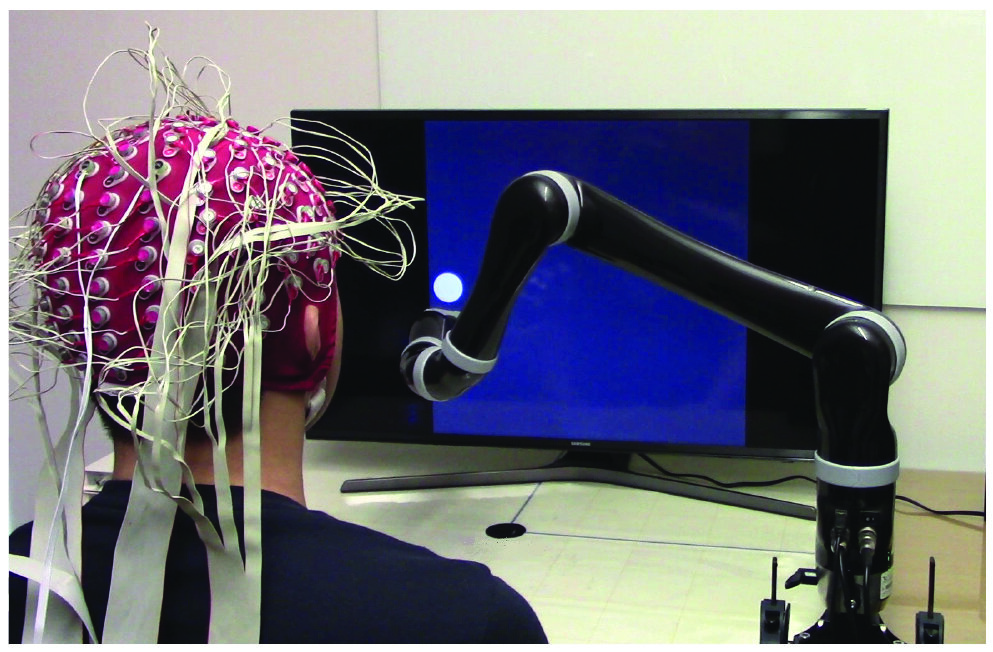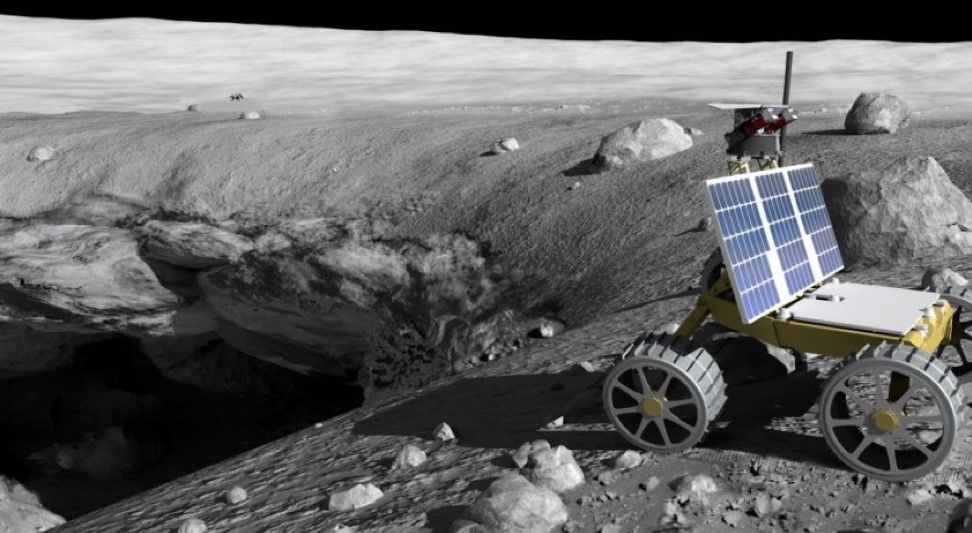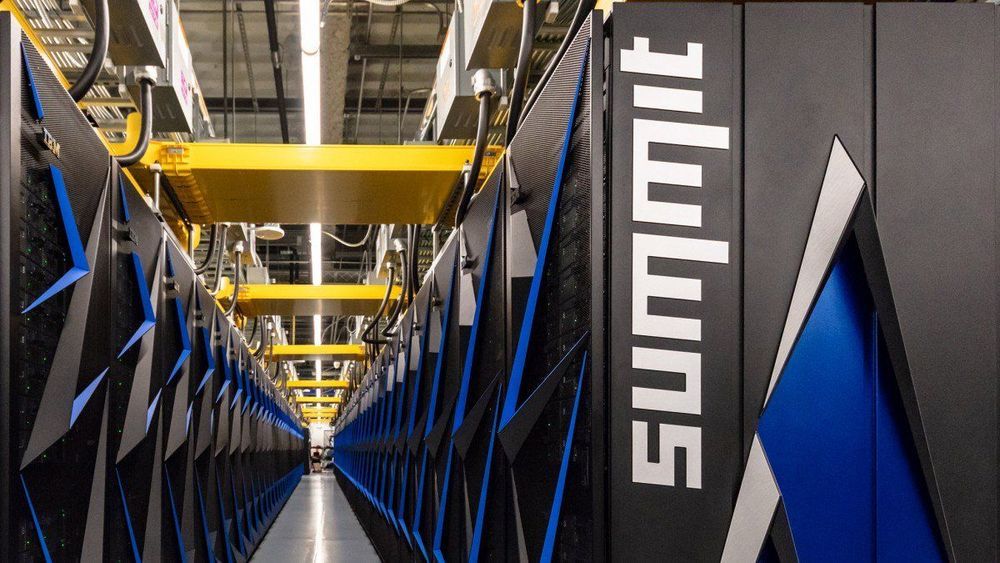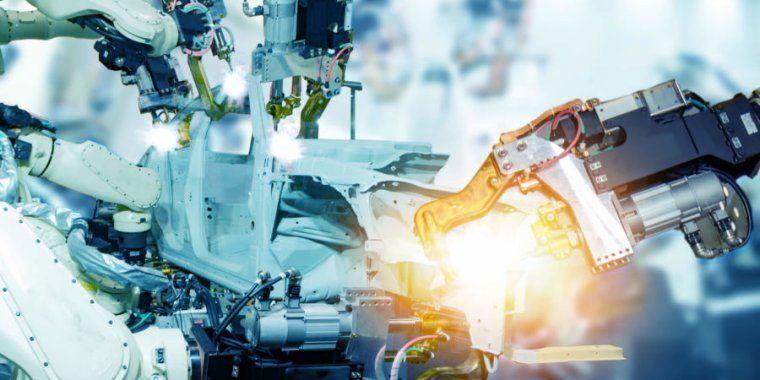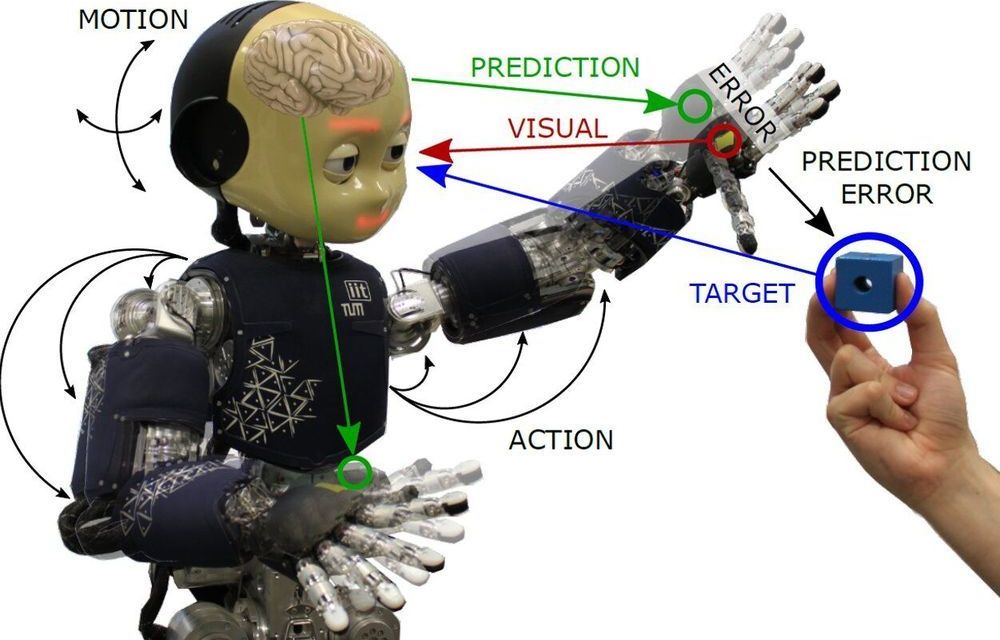Archive for the ‘robotics/AI’ category: Page 1815
Jun 20, 2019
Facebook Unleashes Software to Make Programming Robots Easy
Posted by Genevieve Klien in categories: employment, robotics/AI
Anyone who tells you the robot apocalypse is upon us—that the machines will not stop stealing our jobs, that they are gearing up to chase us through the streets while doing backflips and fighting off stick-wielding humans—has never tried to program a robot. It’s difficult to get a machine to do so much as move an arm, which requires the precise control and coordination of joint angles and torque.
The difficulty of programming robots is a problem that Facebook, of all companies, wants to fix. Today the social network continues its unlikely dive into robotics by open-sourcing a new robot framework, known as PyRobot, that could simplify the way researchers program their machines, and could even make it easier for non-robotics types to jump into the field. If programming robots has so far been something like wading through a command-line interface, PyRobot promises to be like gliding through the sleekness of macOS. At least, that’s the hope: Many others have tried and failed to do this kind of thing.
Jun 20, 2019
Machine learning unlocks mysteries of quantum physics
Posted by Paul Battista in categories: quantum physics, robotics/AI
Understanding electrons’ intricate behavior has led to discoveries that transformed society, such as the revolution in computing made possible by the invention of the transistor.
Jun 20, 2019
An AI-Guided Dishwasher Is Helping Restaurants Facing Labour Shortages
Posted by Genevieve Klien in category: robotics/AI
Dishwashers already make our washing automated. This robot uses AI scanners for extra cleanliness.
Jun 19, 2019
California police put Robocop on patrol in park
Posted by Genevieve Klien in category: robotics/AI
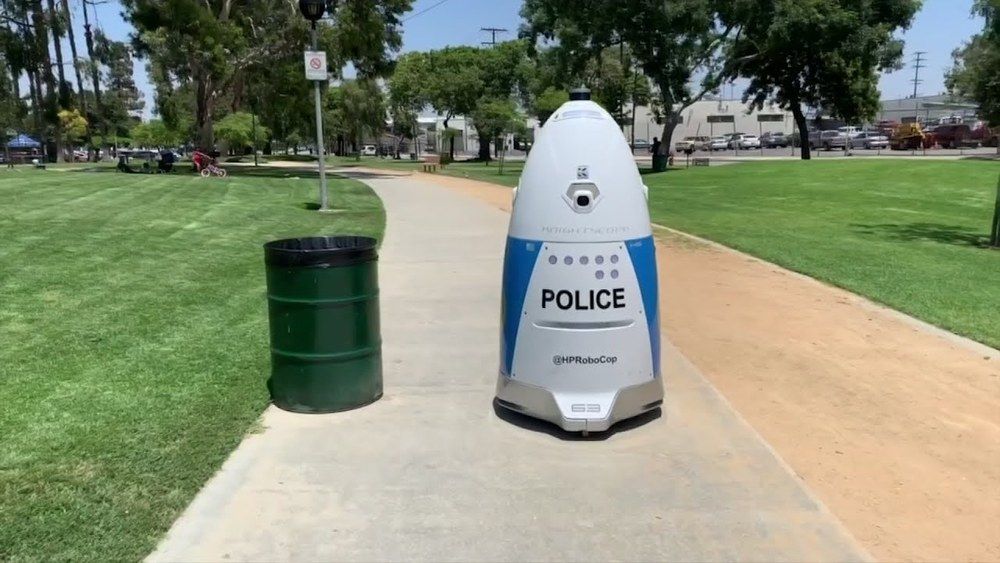
A Southern California police force is welcoming a robot to the department. Huntington Park police say “HP RoboCop” will provide 360-degree high-definition video footage. (June 18)
Subscribe for more Breaking News: http://smarturl.it/AssociatedPress
Website: https://apnews.com
Twitter: https://twitter.com/AP
Facebook: https://facebook.com/APNews
Google+: https://plus.google.com/115892241801867723374
Instagram: https://www.instagram.com/APNews/
You can license this story through AP Archive: http://www.aparchive.com/metadata/youtube/a1e7febf5c776eb70daeed9dfe7bea48
Jun 19, 2019
First-ever successful mind-controlled robotic arm without brain implants
Posted by Paul Battista in categories: biotech/medical, robotics/AI
A team of researchers from Carnegie Mellon University, in collaboration with the University of Minnesota, has made a breakthrough in the field of noninvasive robotic device control. Using a noninvasive brain-computer interface (BCI), researchers have developed the first-ever successful mind-controlled robotic arm exhibiting the ability to continuously track and follow a computer cursor.
Being able to noninvasively control robotic devices using only thoughts will have broad applications, in particular benefiting the lives of paralyzed patients and those with movement disorders.
BCIs have been shown to achieve good performance for controlling robotic devices using only the signals sensed from brain implants. When robotic devices can be controlled with high precision, they can be used to complete a variety of daily tasks. Until now, however, BCIs successful in controlling robotic arms have used invasive brain implants. These implants require a substantial amount of medical and surgical expertise to correctly install and operate, not to mention cost and potential risks to subjects, and as such, their use has been limited to just a few clinical cases.
Jun 19, 2019
NASA Wants Robots to Sniff Out Moon Pits for Astronaut Homes
Posted by Klaus Baldauf in categories: habitats, robotics/AI, space
Jun 19, 2019
The world’s best supercomputers are being updated to run AI software faster
Posted by Genevieve Klien in categories: climatology, robotics/AI, supercomputing
The upgrades include changes to make AI programming simpler—and to speed up powerful machines for specific AI tasks.
The news: The International Supercomputing Conference (ISC) kicked off in Frankfurt yesterday with the release of the latest list of the 500 most powerful supercomputers in the world. US machines still top the ranking, but China has the most computers on the list (219 versus 116 for the US).
Supercomputers have already turbocharged some AI applications. For example. the US’s Summit supercomputer (pictured above), which leads the Top 500, has already run a complex machine-learning model for climate research faster than any other machine.
Jun 19, 2019
The fourth Industrial revolution emerges from AI and the Internet of Things
Posted by Genevieve Klien in categories: internet, robotics/AI
IoT has arrived on the factory floor with the force of Kool-Aid Man exploding through walls.
Jun 18, 2019
Applying active inference body perception to a humanoid robot
Posted by Saúl Morales Rodriguéz in category: robotics/AI
A key challenge for robotics researchers is developing systems that can interact with humans and their surrounding environment in situations that involve varying degrees of uncertainty. In fact, while humans can continuously learn from their experiences and perceive their body as a whole as they interact with the world, robots do not yet have these capabilities.
Researchers at the Technical University of Munich have recently carried out an ambitious study in which they tried to apply “active inference,” a theoretical construct that describes the ability to unite perception and action, to a humanoid robot. Their study is part of a broader EU-funded project called SELFCEPTION, which bridges robotics and cognitive psychology with the aim of developing more perceptive robots.
“The original research question that triggered this work was to provide humanoid robots and artificial agents in general with the capacity to perceive their body as humans do,” Pablo Lanillos, one of the researchers who carried out the study, told TechXplore. “The main goal was to improve their capabilities to interact under uncertainty. Under the umbrella of the Selfception.eu Marie Skłodowska-Curie project we initially defined a roadmap to include some characteristics of human perception and action into robots.”

